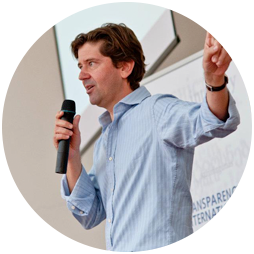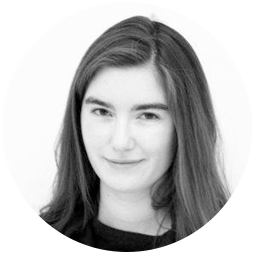-

We are the world’s biggest forum in the fight against corruption
Bringing together heads of state, civil society, business, investigative journalism & more around the world to end corruption.
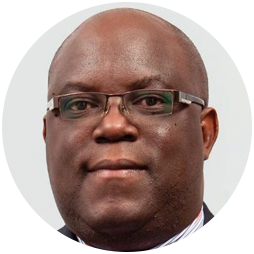
Rueben Lifuka is an Architect and Environmental Management Consultant working in Zambia and the Southern African region. He is also a 2011 Draper Hills Summer Fellow with the Centre for Democracy, Development and the Rule of Law at Stanford University, USA. He is one of the founder members of Transparency International Zambia and served as its Chapter President from 2007 to 2012. He was also elected in 2008 as a Board member on the international board of Transparency International. He served two terms of office until 2014. During his tenure as TI Board member, Rueben pierced on several committees, notably, he chaired the important Membership Accreditation Committee. He was recently elected to serve on the International Anti Corruption Conference Council. Today, he continues to be actively involved in research and advocacy on climate change and corruption as well as land and corruption in Africa.
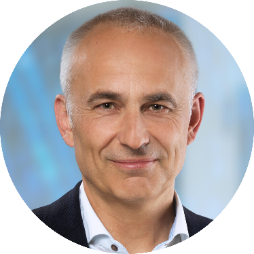
Klaus Moosmayer joined Novartis in 2018 as Chief Ethics, Risk & Compliance Officer and a member of the Executive Committee. He was previously chief compliance officer at Siemens AG, where he spent 18 years in roles of increasing seniority. He began his career as a lawyer in Germany, specializing in white-collar crime, business law and litigation.
Today, Klaus is transforming ethics, risk and compliance at Novartis in the same way the company is reimagining medicine – by pursuing innovation, using data and digital, and unleashing the creative power of employees to embed ethics into the core of the business.
‘Doing what’s right for patients and society is, and must always be, our priority. It’s a journey, and we remain humble in our understanding that this will take time. But we are well on our way’.
Klaus led the launch of a new Code of Ethics in 2020, based on crowdsourced feedback from employees and on behavioral science. He introduced an integrated risk management system that helps senior management prioritize and manage key risks across the company, supported by a new policy and control framework. And he set up a new process to ensure human rights are further integrated into core business practices, especially third-party risk management.
Klaus brings a global reputation as a leader in the field of ethics and compliance. He was the first head of compliance from a company to be invited to address the General Assembly of the United Nations about the fight against corruption. He leads global integrity, compliance and anti-corruption bodies for business on behalf of the Organization for Economic Co-operation and Development (OECD) and the G20/B20.
As a believer in collaboration, Klaus co-founded and chaired a nonprofit association of compliance heads from major European companies, and is on the advisory panel of the Pharmaceutical Supply Chain Initiative to further drive compliance standards at an international level.
Outside of work, Klaus enjoys spending time with his family, practicing sports and driving his vintage car.
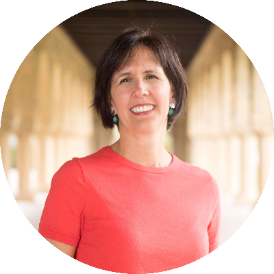
Marina Walker Guevara is the Pulitzer Center's executive editor.
Before joining the Center, Walker Guevara was deputy director of the International Consortium of Investigative Journalists (ICIJ). She managed two of the largest collaborations of reporters in journalism history: The Panama Papers and the Paradise Papers, which involved hundreds of journalists using technology to unravel stories of public interest from terabytes of leaked financial data.
Walker Guevara was instrumental in developing the model of large-scale media collaboration, persuading reporters who used to compete with one another instead to work together, share resources and amplify their reach and impact.
Her work as a journalist started in her native Argentina. Her stories on topics ranging from environmental degradation by multinational companies to the global offshore economy have appeared in leading international media, including The Washington Post, Miami Herald, Mother Jones, Le Monde, and the BBC.
She has won or shared more than 50 national and international awards, including the 2017 Pulitzer Prize for Explanatory Reporting.
In 2018-2019, she was a John S. Knight fellow at Stanford University. During her fellowship, she focused on the use of artificial intelligence in big data journalistic investigations. That same year, she received the Missouri Honor Medal for Distinguished Service from her alma mater, the Missouri School of Journalism.
Walker Guevara sits on the board of directors of the Global Investigative Journalism Network (GIJN) and is a co-founder of the Latin American Center for Investigative Journalism (CLIP).
The Carnegie Corporation named her one of 38 "Great Immigrants, Great Americans" in 2018 for her work leading global teams of investigative journalists working in the public interest.
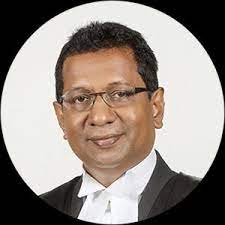
JC Weliamuna is a Sri Lankan constitutional & human rights lawyer with 30 years of extensive practice and is an anti-corruption and human rights activits. He was the first Executive Director of the Transparency International Sri Lanka and later served as a member of its International Board. He has played a major part in the civil society movement of the country to re-establish democracy. He has contributed to mainstream anti-corruption agenda nationally, regionally and globally. He has contributed to various national and international forums and institutions in the field of governance, anti-corruption, constitutional, and human rights law while contributing to governance reforms. He has served as a member in public and private (mainly not for profit sector) institutions and higher educational institutions and has worked extensively as an expert with leading international organizations, both at policy and operational level, on asset recovery. He served as the Chairman of Sri Lanka’s first Presidential Task Force for Recovery of State Assets, prior to him being appointed as Sri Lanka’s High Commissioner to Australia. Presently he is serving as an Adjunct Associate Professor, School of Governance, Griffith University.
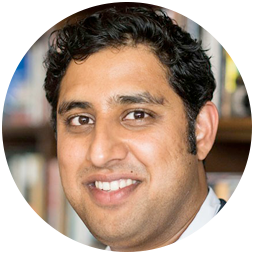
Rajiv Joshi is a social entrepreneur and activist who serves as Managing Director and a founding member of The B Team, based in New York. He is working actively with some of the world’s most influential CEOs to help redefine the role of business in tackling inequality, corruption, climate change and other barriers to sustainable development. Rajiv has served as a Trustee of Oxfam and as Executive Director and Head of Programs for the Global Call to Action against Poverty (GCAP), the world’s largest civil society alliance working to end poverty and inequality. During this time he led global action towards the achievement of the Millennium Development Goals (MDGs), mobilizing over 173 million people as part of the ‘Stand Up: Take Action’ initiative. He also supported The Elders with their ‘Every Human Has Rights’ campaign and helped spearhead citizen participation in creating the Sustainable Development Goals (SDGs), as co-founder of ‘The World We Want 2015’ platform and founding Chair of the Post-2015 Policy and Strategy Group.
Rajiv also serves on the Board of the Centre for Scottish Public Policy. He previously served for six years as an elected Board Member of CIVICUS based in Johannesburg, representing civil society organisations in more than 100 countries. In 2008 Rajiv founded the CIVICUS Youth Assembly.
From 2005-2007 Rajiv served two elected terms as Chair of the Scottish Youth Parliament, and has also been a Senior Advisor to the British Council, as well as a publicly appointed member of the Equality and Human Rights Commission (Scotland Committee). He also worked as a Senior Public Sector Consultant with CapGemini in the UK. Rajiv holds a First Class Honors Degree in Economics from the University of Strathclyde and a Masters in Public Policy and Administration (MPA) with a focus on International Economic Policy from the School of International and Public Affairs at Columbia University.
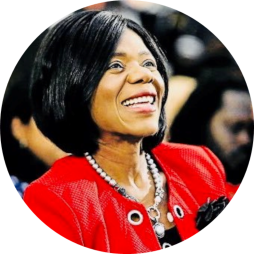
Thuli Madonsela is an advocate from South Africa. She is the Public Protector of South Africa. Madonsela is an ordinary member of the Pretoria branch of the African National Congress (ANC). During the apartheid era Madonsela served in the ANC and in the United Democratic Front anti-apartheid organisation. Madonsela was also one of the drafters of South Africa’s current constitution in 1994.
She is an advocate for Gender equality and the advancement of women, Madonsela is a member of South African Women Lawyers Association (SAWLA) and Business Women’s Association of South Africa (BWASA). In 2012, she was honoured with South Africa’s most Influential Women Award. She has authored and co authored several publications including books, chapter, journals and handbooks on gender management and gender mainstreaming.
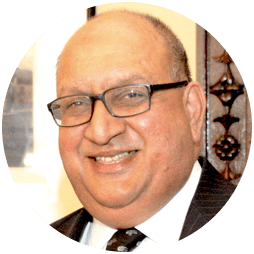
Anand Satyanand is a New Zealander with family links to the Pacific and India. He comes to the IACC after an association with the New Zealand chapter of Transparency International, as a Director and then Patron for three years. He has a long record of contribution to public life and served as the country’s 19th Governor-General between 2006 and 2011. Following that he undertook two roles with an international aspect, first as Chair of the Commonwealth Foundation, the people’s organisation counterpart to the Commonwealth Secretariat in London, and secondly as a member of TI’s International Advisory Council. Prior to appointment as Governor-General, he had been one of New Zealand’s Parliamentary Ombudsmen for two terms, each of five years. In New Zealand, the Ombudsman office has jurisdiction for cases involving maladministration as well as freedom of information. Prior to that he worked for 12 years as a judge in the District Court with a specialist warrant for criminal jury trials. In this judicial time, he also worked as a member of the National Parole Board and in developing judicial education programmes in New Zealand. Born and raised in Auckland he studied and then practised law in that city, some of that time with the Crown Solicitor’s Office and some in a regular law firm. Over time, he has been the recipient of a number of awards in New Zealand and elsewhere, for example, being knighted with an award of Grand Companion of the New Zealand Order of Merit in 2009, and with the Pravasi Bharatiya Samman Award by the President of India in 2011, membership of the Royal Order of Tonga by King Tupou V, and the Rotary International Award of Honour. Throughout, he has maintained a number of community interests to do with sport and cultural affairs. He and his wife Susan have three adult children and five grandchildren and live in Wellington, New Zealand’s capital city.
